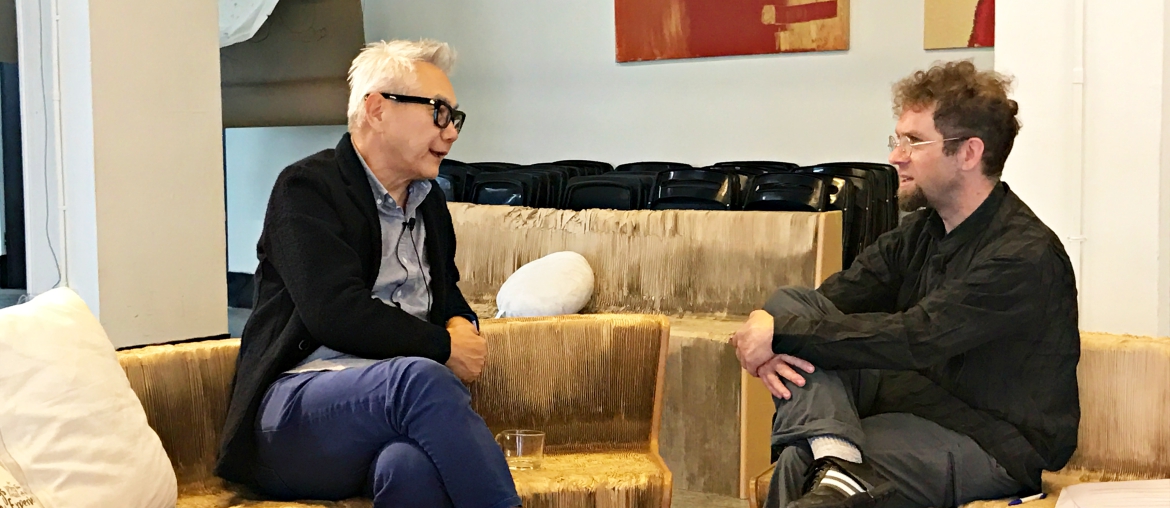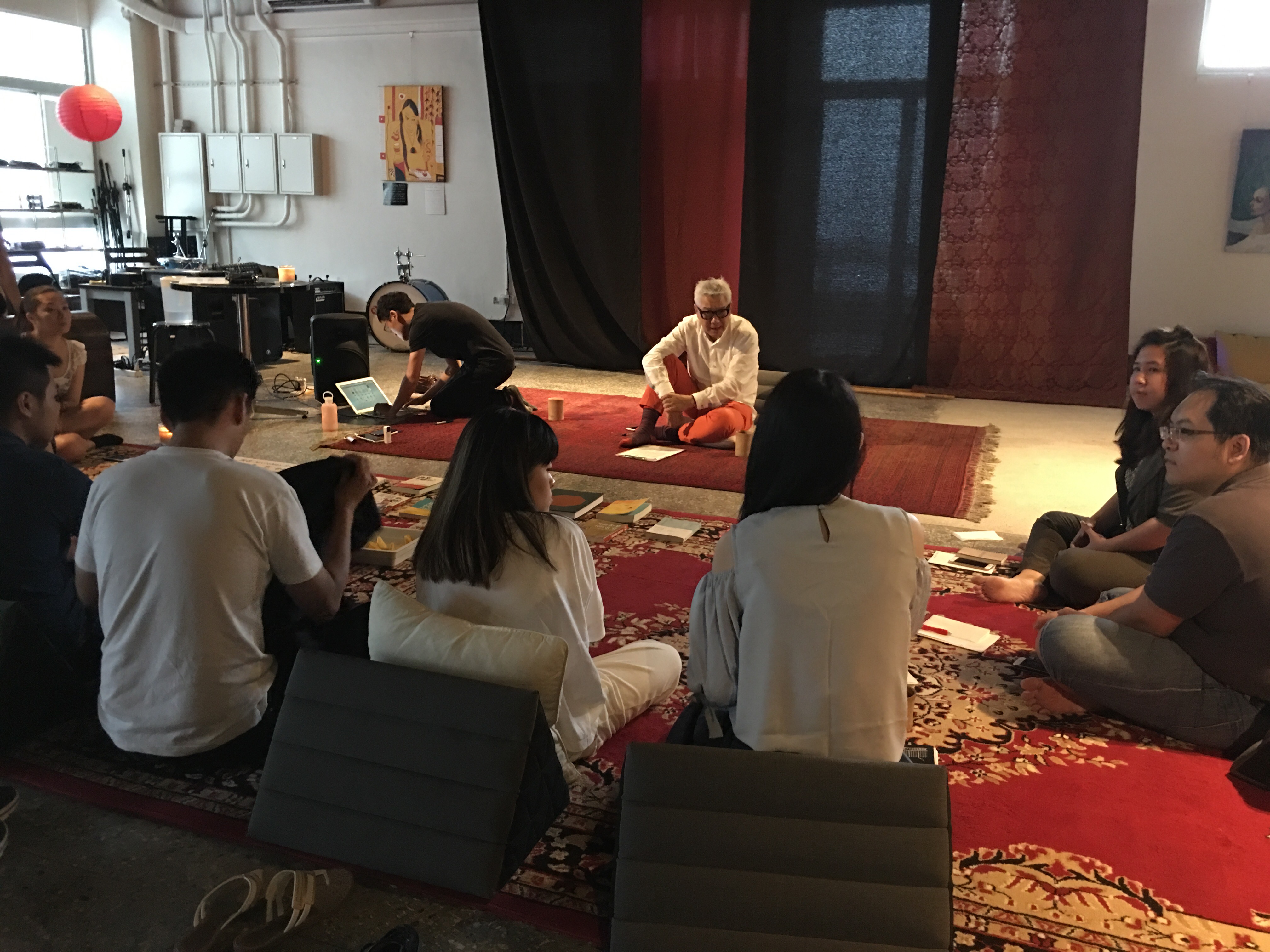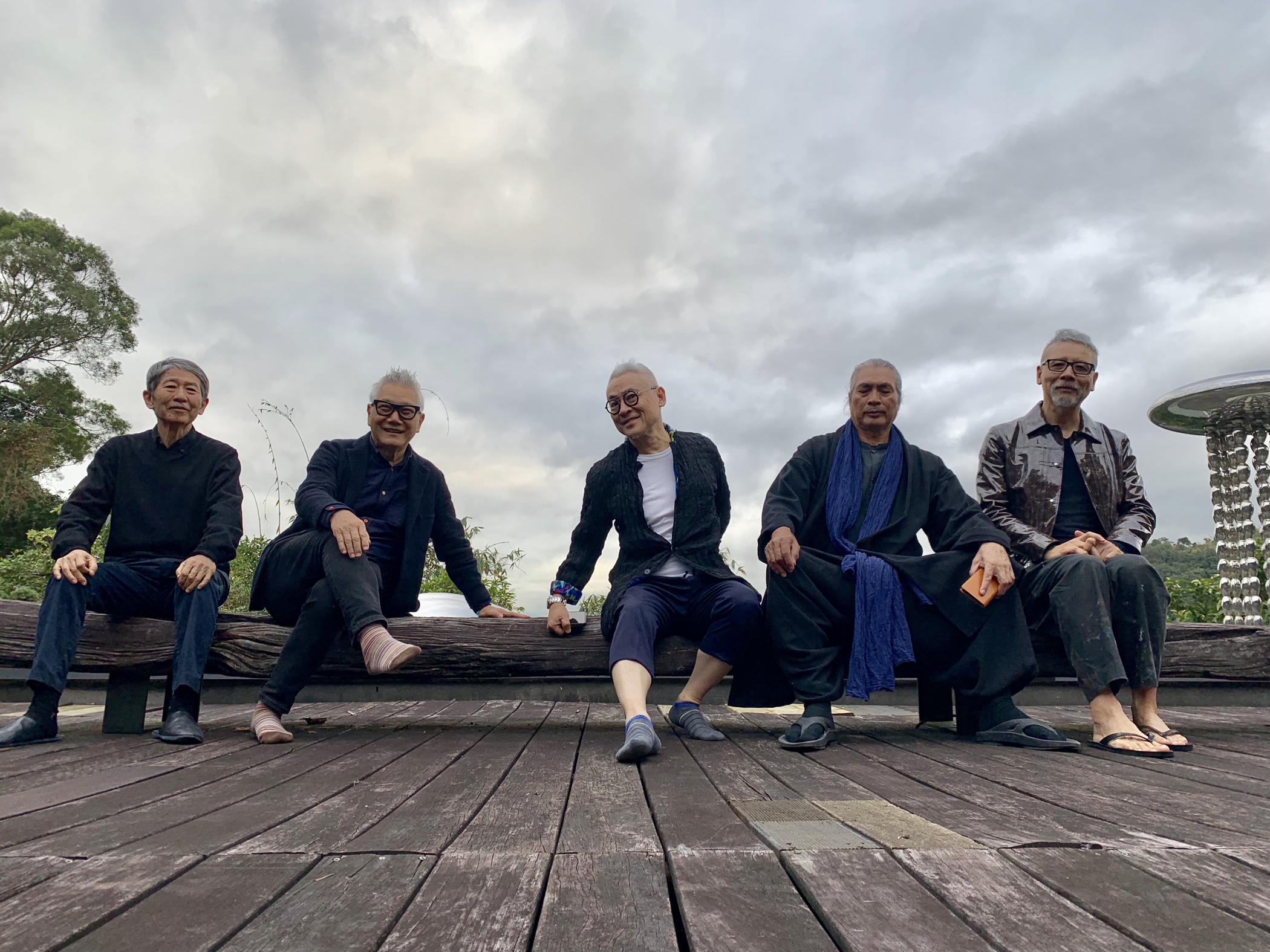
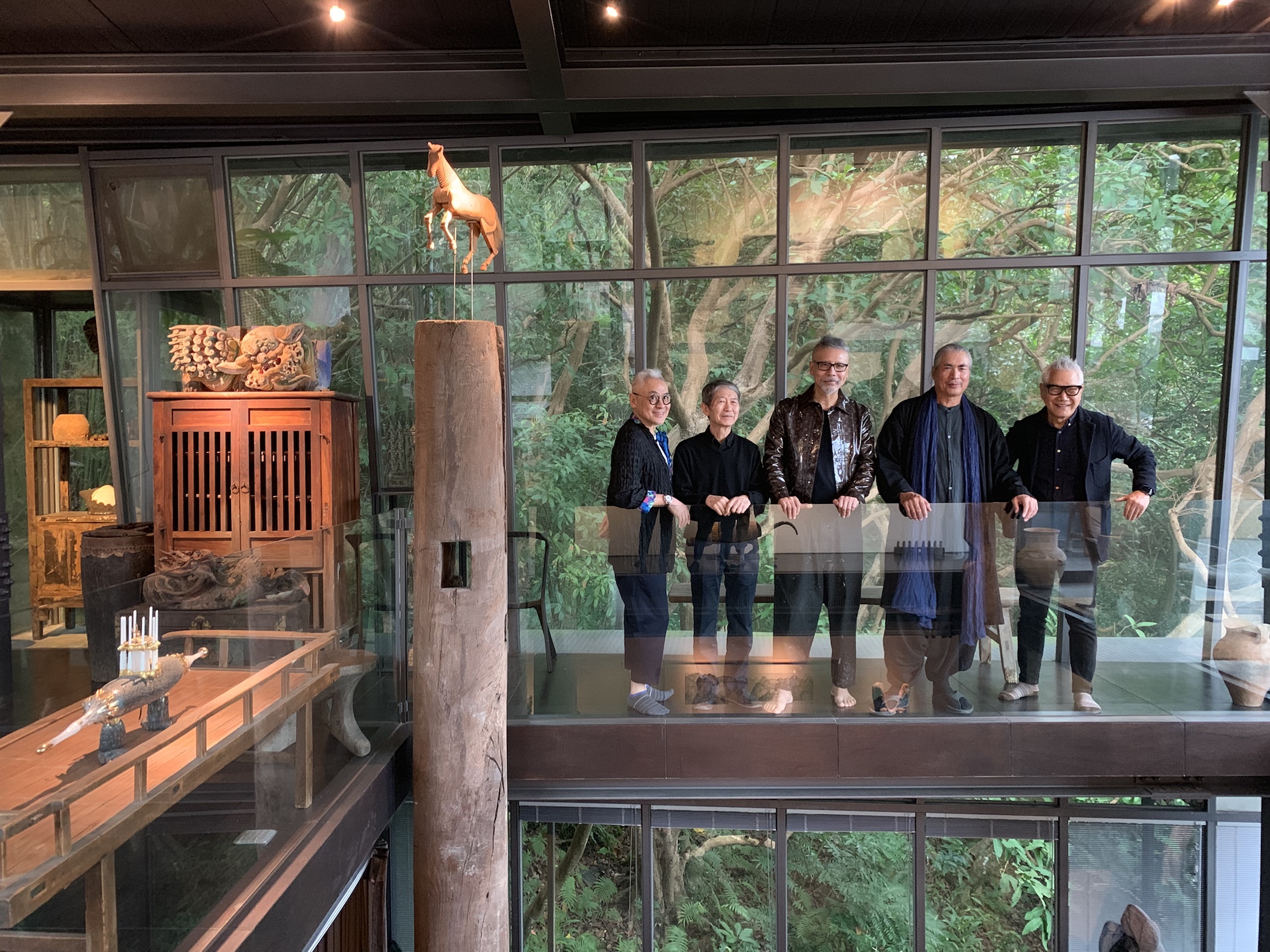
跟十八歲的自己說話
在台東大學跟150位大學生上通識教育課。該講什麼?
1.「誰來聽課前有先Google我?」
你對講者有沒有好奇心?有沒有事先了解這個人做了什麼事。
2. 「要把英文學好。」
英文是一個工具,讓你建立多一種思維模式,讓你能夠跟世界溝通。
3. 「允許自己不知道自己的passion是什麼。」
但是要記得下一句話。當你全力以赴的把事情做好,你就變成那個passion。
4. Catch people doing the right things
看到陌生人做對的事情, 走上前跟他說謝謝。做他們的?日人。
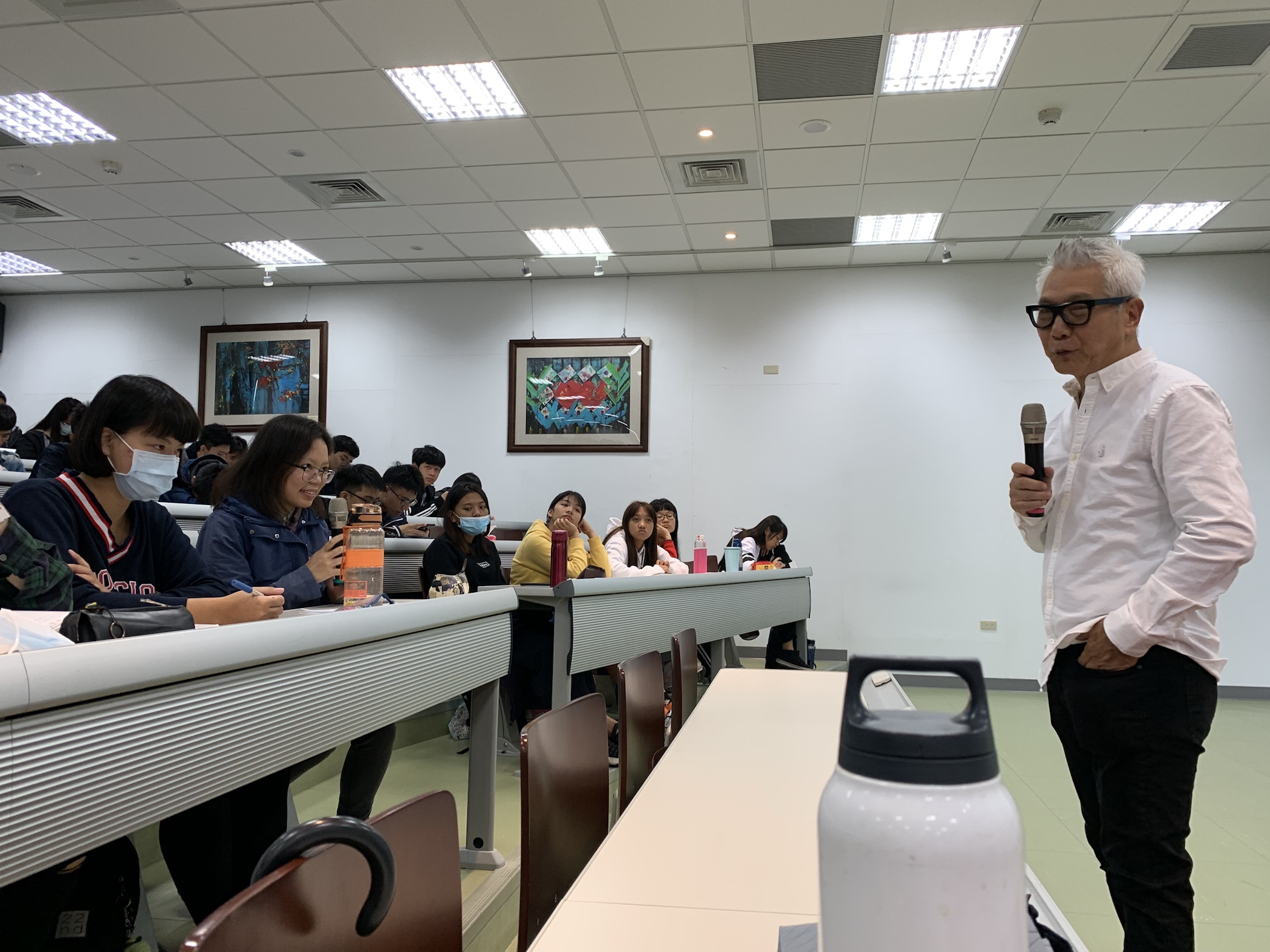
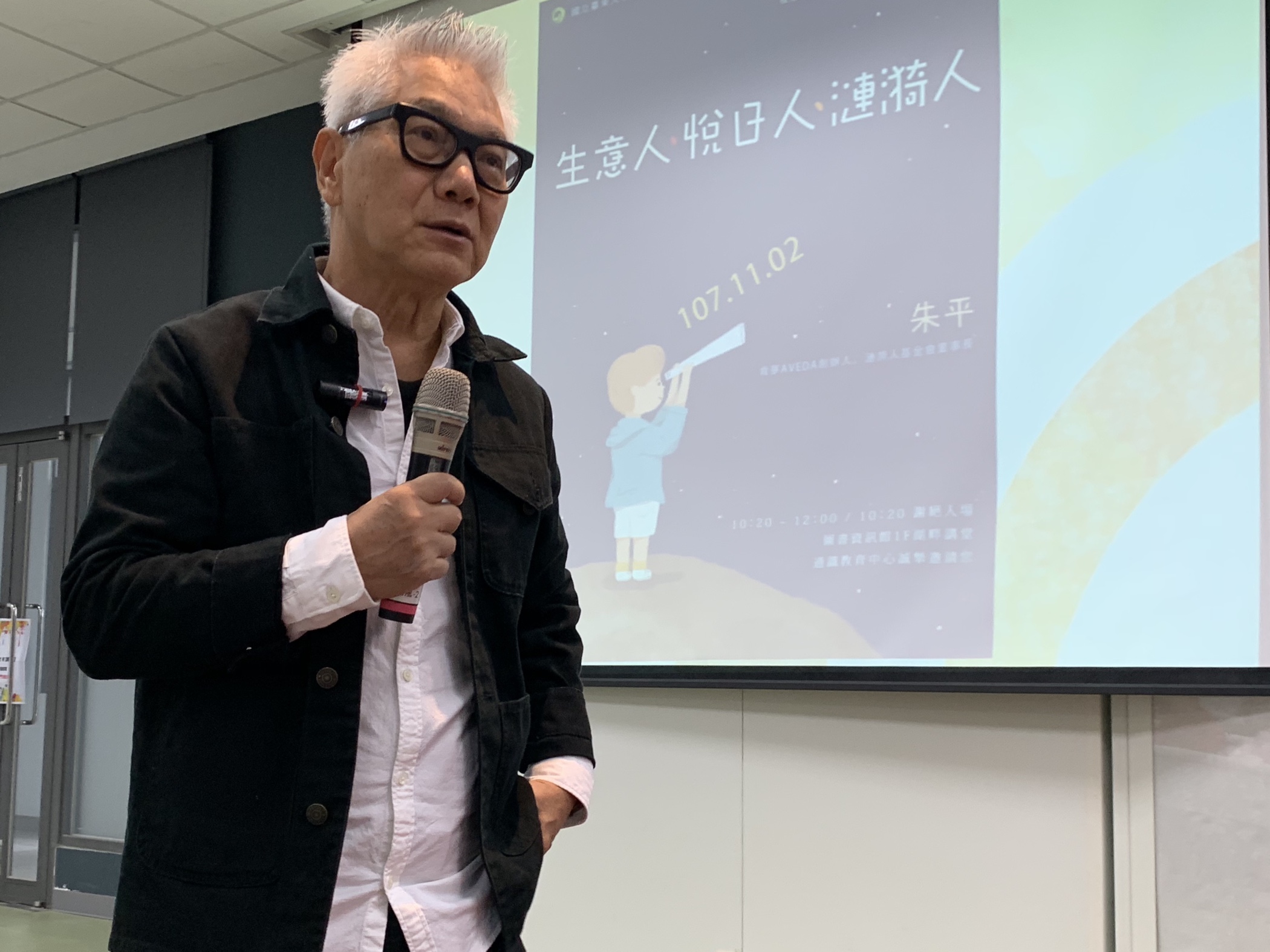
Quote for 2018
Action Expresses Priorities
– Mahatma Gandhi –
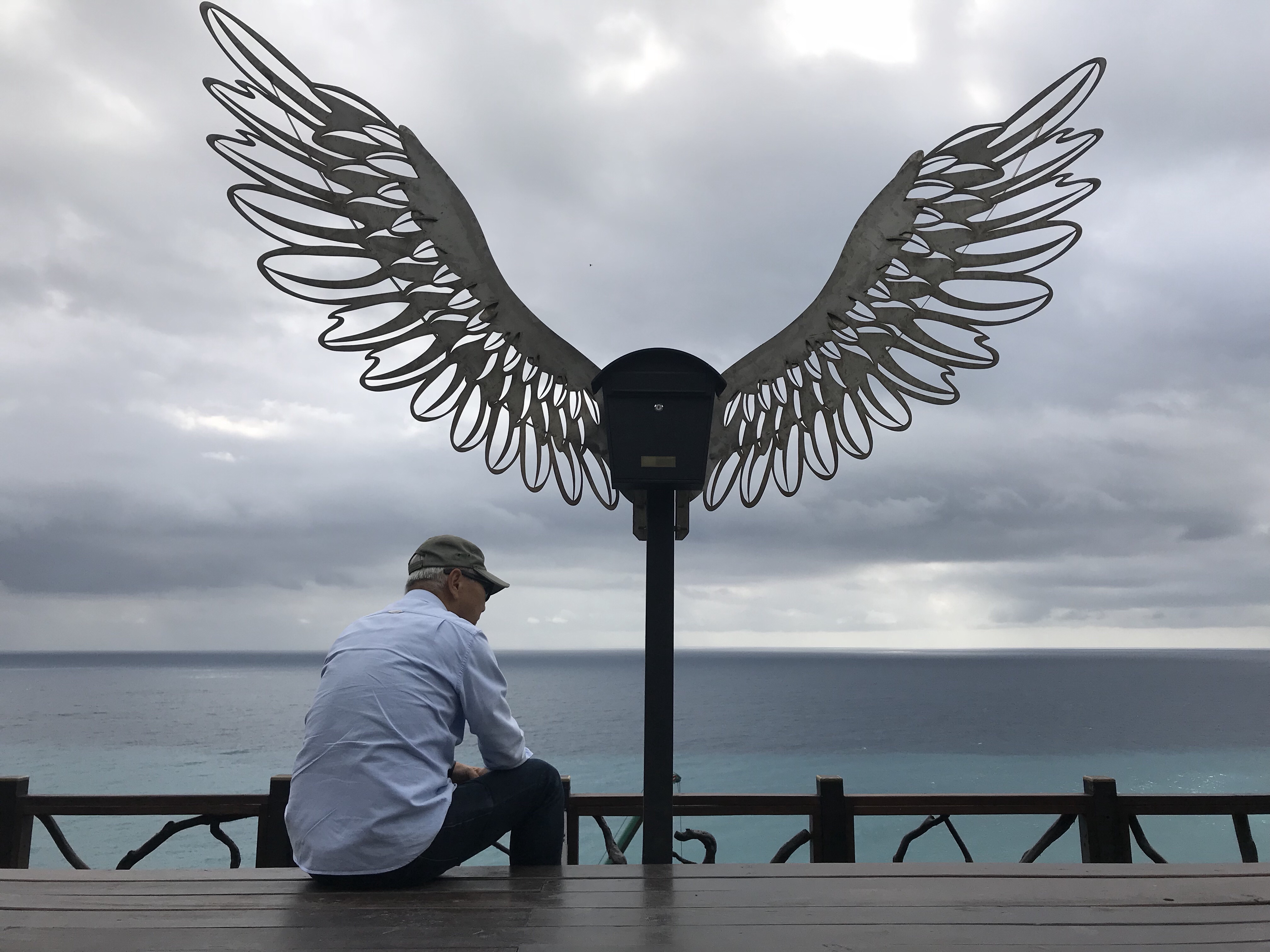
“A stranger is a friend you haven’t met yet” (A Conversation between MyTaiwanTour and Chu Ping)
本文轉載自Voices from Taiwan by My Taiwan Tour, on 11/27/2017
原文出自於https://www.mytaiwantour.com/blog/2017/11/27/stranger-friend-havent-met-yet-conversation-mytaiwantour-chu-ping/
“Chu Ping is not your typical interview subject. Our conversation (which at times crossed the line from Ted Talk to Tony Robbins seminar) ranged from tourism to art, capitalism to futurism, poetry to human rights. Chu Ping (or simply Ping to friends, and since Ping regards friendship as a most cherished value that’s how I’ll be referring to him here on in) is a modern-day Renaissance man, with a field of interest as difficult to summarize as that of revered American theorist, author and and designer Buckminster Fuller.”
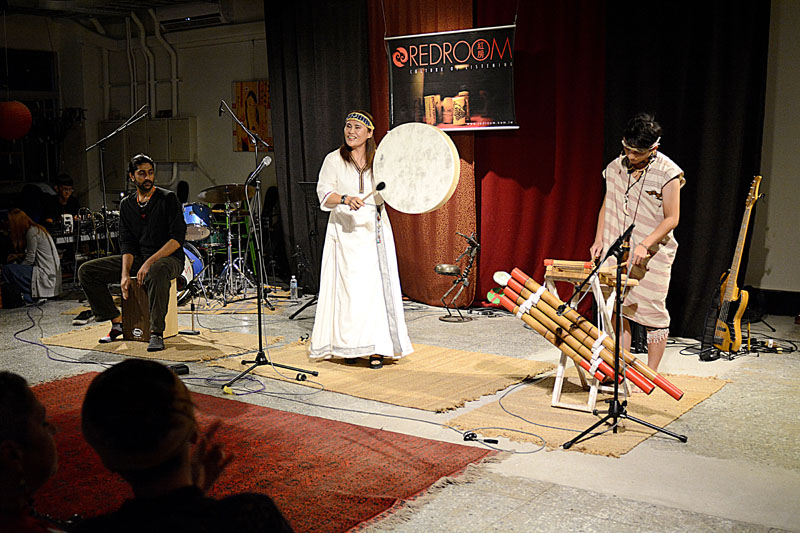
Among Ping’s current pursuits are Forward Taiwan, an organization dedicated to strengthening Taiwan’s global economic position through efforts to improve national immigration policies and Happier Lab, a social innovation group promoting co-creation in a variety of fields. And this merely scratches the surface of Ping’s activities. He’s also the co-founder of Taipei’s Red Room, an ever-expanding community gathering/performance space. And this barely scratches the surface.
I met up with Ping for an interview at Happier Lab headquarters. I’d barely sat down before Ping began interviewing me.
“Are you doing what you love in life?” He asked, his trademark gravelly voice adding gravitas to the question.
It was a good question, though unexpected.
“Well, I love promoting tourism in Taiwan,” I answered.
Ping laughed. “You don’t need to promote tourism in Taiwan. Just let people know how happy you are here. The important thing is to promote Taiwanese values.”
Promoting Taiwanese values are at the core of everything Ping does, and the subject would come up throughout our 90-minute conversation.
“Fair enough,” I replied. “But seeing as I work for a travel company, which specific Taiwanese value should I be promoting?”
“Ren qing wei,” he answered.
Like many multi-layered concepts, ren qing wei defies simple translation. But the conversation was already getting into deep territory, so I asked Ping to translate it nonetheless.
“It’s hard to translate. Like xiao long bao. Steamed dumplings, right? But so much flavor gets lost with that translation. I guess you could translate it as hospitality, though really that word doesn’t do it justice.
Ren qing wei is so more than that. Trust, empathy.”
As Ping fished for words to do the term justice, I snuck a peek at Google translate, which rendered the phrase as “Human Touch”.
“It’s a good start, but it is more than that. Honestly, it’s something you need to experience to understand. From your point of view as a travel company, you should promote Taiwan as an ideal society, a place where people not only trust each other but also treat visitors like family members. We must live this concept, for example…”
At this Ping looked up and addressed my colleague April, who was behind the camera.
“As a Taiwanese, what have you done today to specifically promote the concept of ren qing wei?”
April shrugged. She’d expected her part in the assignment to remain mostly technical.
“For example…?” She asked.
“You see a foreigner who looks lost. Do you reach out and try to help them? Do you stop and say what can I do for you, where you want to go. It’s on my way, I’ll take you there.”
Ping was referring to a phenomenon well known to any long-term expat in Taiwan who’s ever spent more than 30 seconds looking at an MRT station wall map. It’s an old chestnut, but as Taipei has become more internationalized, I’d noticed it happening less.
Ping wasn’t deterred in the least when I mentioned this.
“Maybe we should do a social experiment, film a few foreigners standing by subway maps, put the result on the internet. That would be some good promotion. Anyway, I don’t want people to be indoctrinated, even by this article. Taiwan is the best-kept secret in Asia. Come here with an open mind, Visit for a while. Maybe you’ll stay for the rest of your life.”
Which proved a good segue into another of Ping’s passion projects. Because if bringing people to Taiwan is our passion as a travel company, keeping them here is Ping’s, and he was eager to talk about the great strides recently made to that effect in the Taiwan legislature, partially as a result of the work of another project he’d long spearheaded, Forward Taiwan, whose years of lobbying was on the verge of bearing fruit in the form of actual legislation.
“I’m very happy to share with everyone the fact that Taiwan has just passed a new law. On the surface, it’s set up to recruit talented people to Taiwan, but our hope is that in addition to doing that it’ll help encourage people who are already in Taiwan to stay by providing a clear roadmap for how immigrants can make their lives in Taiwan, not just for the short term but for the long term.”
Ping was referring to issues faced by many expatriates who’ve chosen to settle in Taiwan. While the majority of foreign-born Taiwan residents enjoy some of the same social benefits as Taiwan born citizens, there are still gaping holes in the social safety net, specifically in so far as residency benefits for children and inclusion in retirement programs and pension schemes. He expressed hope that the new laws will close some of these gaps.
“Look, the government legislators understand that the only way we can attract new talent is through the referrals of people who already live here. The new laws now being worked out are going to do a lot to keep the people who are in Taiwan already to stay here. It’ll offer a clear roadmap for how immigrants can make their lives in Taiwan.”
Changing the way that Taiwan thinks about the concept of Talent – at least insofar as immigration policy is concerned – is another of Forward Taiwan’s purposes.
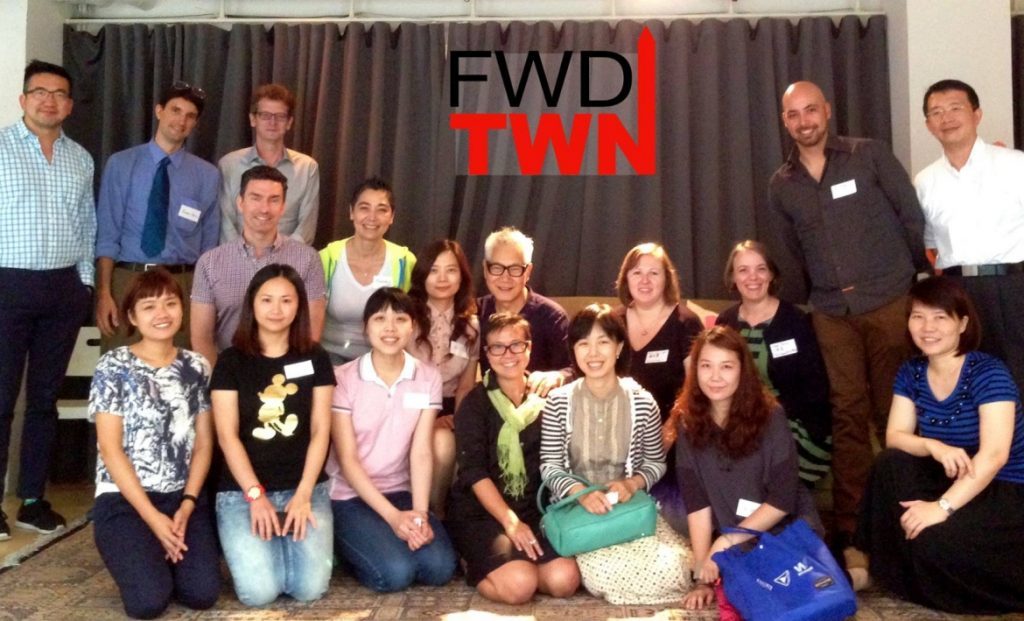
“Right now there are only two ways to describe talent in Taiwan. One is salary, and the other is college degree, which is really an outdated way of thinking. What about artists? What about people without a degree from a so-called top 500 university? There are so many people who have so much of what Taiwan is looking for insofar as creativity and innovation, cross culture and diversity that it makes no sense to restrict the talent pool like this. So we’re trying to change the laws, trying to open things up to allow for a more inclusive visa system for artists, social organizers, long-term caretakers for the elderly. Things are changing, of course. We need to attract more talent to Taiwan.”
As we continued speaking, it became clear to me that Ping’s interest in attracting foreign talent to Taiwan was only partly based on Taiwan’s business interest. There was also a streak of patriotism, a desire to show off the achievements of his nation far and wide.
“Taiwan is a civilized society, a society that offers health care to all its citizens. This is part of ren qing wei, our social responsibility. People take care of each other here, and that is a big part of why Taiwanese society is generally happy. Now in America, people are held hostage by their jobs. If they leave, they lose their healthcare. This is thankfully not the case in Taiwan. We regard healthcare as a human right, and we want everyone in the world to know this. So yes, we want people to come to Taiwan as tourists, but to stay, to make Taiwan a second home.”
“What about the language issue?” I asked. “A lot of foreigners find learning Chinese difficult.”
Ping shrugged it off.
“The best way to learn Chinese is to be there, hang out in a Chinese speaking environment,” he said. “Anyway, being bilingual is a way to expand your brain. In any event, many people in Taiwan have good English proficiency.”
There was, of course, some truth to this. People who travel around Taiwan often come away with similar tales of taxi drivers, small-town train depot ticket sellers, and random strangers throughout the island able to speak English ranging from passable to surprisingly fluent. But according to Ping, Taiwan could be doing better on this front. Much better.
Enter, the Moonshot Program.
“The name is based on JFK’s famous proclamation about landing America on the moon inside of ten years,” Ping explained. “Everyone thought it was a pipe dream, but it happened. Well, our dream is to make Taiwan a bilingual country, with English as one of our official languages 33 years from now, by the year 2050.”
I told Ping that this seemed impossible.
“It is not impossible!” He shot back. “Difficult, yes, but not impossible. We need 10,000 English teachers to come here and be spread out through the country, not just in the city’s but in the country.”
As to why Taiwan should adopt English as a second language, Ping points to the gap in Taiwan between ‘those who can command English and those who cannot’.

“People who aren’t bilingual in Taiwan will always be behind the curve. Knowledge is power, and those who can’t command English are more prone to being sycophantic, yet at the same time, they’ll be more xenophobic. I don’t want to see that. The time for protecting Taiwan from outside influences is over; the younger generation are the ones that need to make this happen as the older generation, the more conservative fundamentalist generation, the myopic people, they’re dying out. It’s up to the younger generation. By promoting a bilingual Taiwan, we are focusing on the strength of Taiwan, our openness, and flexibility.”
Promoting Taiwan, and increasing the open society access of Taiwan, is at the core of much of what Ping puts his energy into, from Forward Taiwan and Red Room to more esoteric and far-reaching endeavors like the Moonshot Program. But facilitating change within Taiwanese society is another part of what drives Ping, and in this aspect, there is also something of the gentle revolutionary in him. Not in the Che Guevara or Chairman Mao model, but in the way of Buckminster Fuller, who Ping quotes to describe his own philosophy of social change.
“As Buckminster Fuller said, ‘You never change things by fighting the existing reality. To change something, build a new model that makes the existing model obsolete.’ Red Room is this model, a platform from which artists to launch their passions. Forward Taiwan is another platform from which people in Taiwan can effect meaningful change. We’re not about demonstrating in the streets, leave that to other people. We’re creating a platform for the silent majority.
Our conversation had been going on for nearly 90 minutes, and I’d not yet gotten to half of my prepared questions. With time growing short, I decided to skip down to the final item my list. It wasn’t a question so much as a quote, and though it was too broad to associate with any one person since I’d heard it first researching Ping’s writing I thought I’d end by asking him about it.
“You’re fond of saying to accomplish the extraordinary you must interact with extraordinary people. From a travel standpoint, how does one make this kind of serendipity happen?”
Ping thought about it for a moment.
“In my experience, the most extraordinary people I’ve met have been those strangers with whom I’ve just clicked. 20, 30 years later, I still remember these chance encounters. There’s no real formula for this outside of going outside and making things happen. You don’t create extraordinary experiences by sitting at home.”
“And you don’t turn strangers into friends by sitting at home either,” I added.
Ping laughed.
“Not usually. But travel is a great way to do that. Or just come to the Red Room.”
Can We Pull Taiwan Out of Its Identity Crisis?
Why you need to know Taiwan aspires to be the global innovation hub of Asia while driving globally-minded talent away with low salaries and conservative work cultures. How can current globally-minded talent battle disillusionment?
One week after the passage of the Act for the Recruitment and Employment of Foreign Professionals, News Director at Ketagalan Media
and Founder of Taipei Love Notes William Yang and I met at a cafe to huddle over the cynicism about Taiwan that had infected both of us.
As advocates for Taiwan, we weren’t supposed to feel this way.
Island Fever
At the time, I’d hit a foggy patch in my own work with Build Great Bridges Around Taiwan (BGBAT), a community of Taiwan-affiliated thinkers and doers whom I’d convened in hopes of sharing progress and addressing challenges together to build Taiwan’s future.
I’d started the group to look into why Taiwan was stagnating on the transition to a global innovation economy and why it can’t seem to attract and retain globally-minded talent that could drive this innovation. It was especially confounding because Taiwan was able to reverse the brain drain the first time, when it built the Science Parks with a wave of incentives— it’s what brought my father and our family back to Taiwan.
The issue also struck a personal chord because throughout the eight years I’ve lived in Taiwan, my own friends had often left or thought about leaving. I liked most aspects of living here, but my own “island fever” would trigger and I’d think about leaving too, when what was missing hit me — a connection to the global and innovative, a sense of the future and of course, the lack of upward mobility that Yang had pointed out.
After Trump’s election, going back to the U.S. seemed less attractive. So if I was going to stay in Taiwan, I wanted to get down to the bottom of what kind of future we could look forward to here. There is a web of people who care about Taiwan on the island and around the world, so wouldn’t hope lie in pooling our efforts across disciplines to highlight the progress and dig into the challenges together?
Looking back, you could say that I was driven by a belief in civic empowerment. After Trump’s election, it was my one recourse to combat powerlessness – to band together to fight for the kind of society we wanted to live in, because we now knew the consequences otherwise.
Yet as I considered this question of what kind of society we wanted to live in, it became clear that Taiwan was in the middle of an identity crisis — and so was the world.
Innovation Hub, Or Not?
As Taiwan transitions toward an innovation economy, the government of Tsai Ing-wen (蔡英文) has stated its aspiration that Taiwan becomes Asia’s Silicon Valley, and has invested heftily in a project by the same name.
Yet Taiwan’s salaries have remained dismally low and company work cultures are anachronistically conservative and hierarchical, both of which actively discourage innovation. Taiwan’s brain drain has become so infamous that it was highlighted in Time Magazine.
What would it take to fix this issue and why hasn’t the government done so?
An article on why Taiwan’s salaries remained low made me question the effectiveness of civic empowerment and opened the doors to cynicism for the first time.
The main culprit, the article argued, was the Central Bank of the Republic of China’s foreign exchange controls from the manufacturing era, keeping exports low-priced and employment stable. This allows uncompetitive and barely profitable businesses in mature industries – which can’t pay high salaries – to stay in business, and which prevents Taiwan’s industries from upgrading.
But why would the Central Bank do this while the rest of the government talked innovation? Could it be that the government was merely paying lip service to innovation, preferring instead to keep the status quo lest they not be elected into office again during the inevitable transition and higher unemployment rates?
Even worse – has democracy kept us squabbling for votes and without the foresight and will to make tough decisions that might be unpopular in the short term but ultimately good for the economy long term? Would our political dysfunction and consequent economic stagnation make us more vulnerable vis-a-vis China?
An Inconvenient Truth
It was right in the thick of my cynicism that the foreigners’ employment act was passed. While I was happy for my foreign friends for finally getting the recognition and benefits they deserve, I didn’t think the law did much to solve the real issues that held Taiwan back from becoming a global innovation hub. Salaries and work cultures were not addressed; were there any plans to?
Taiwan is already too far behind China and Southeast Asia to be able to pay the kind of salaries typical of a scale-oriented, “winner-takes-all” innovation hub, says Ping Chu, serial entrepreneur, renowned supporter of the arts and entrepreneurial endeavors in Taiwan, and leader of Forward Taiwan, the advocacy group that succeeded in passing the foreigners’ employment act.
Once Taiwan accepts the “inconvenient truth” that it’s too late for us to become Silicon Valley, we can focus on Taiwan’s strength as the best place to live in Asia, says Chu. Taiwan attracts those who prioritize quality of life and self-actualization over net worth, which conveniently keeps greed at bay.
Chu therefore advocates for Taiwan to be branded as “your home in Asia” and to focus on quality of life businesses that take advantage of the freedoms Taiwan offers: low cost of living, safety, friendly people, clean air (it’s all relative), and universal health insurance.
This is also why Chu champions the rights of those who are already here through Forward Taiwan, rather than try to attract talent from abroad: we must cherish talent that chooses Taiwan over the glamor and wealth of other innovation hubs; these talent share our values.
A refreshing perspective. Greed and inequality are plaguing Silicon Valley; it’s a race we can’t win, and may not want to win anyway. If Taiwan were to become Silicon Valley, could we maintain the very qualities that make Taiwan special? Like the turtle and the rabbit, could Taiwan’s slower-paced livability become a beacon when other hubs burn themselves out?
Let’s also not forget Taiwan’s strength as a strong manufacturing base, Chu points out – so why not set Germany’s Mittelstand as our role model instead? I have wondered the same – Germany’s model of small and medium-sized businesses, many of them manufacturing-based and family-owned, is the strong silent type, without the glamor but also without the extremities of risk and inequality characteristic of Silicon Valley. Sounds like a better fit to me.
So as it turns out, our very aspirations to become Asia’s Silicon Valley may have led Taiwan straight into a classic inferiority complex — like a young woman idolizing models in fashion magazines, seeing the glamor but not the reality, desiring only to be what she is not, and ultimately, blinding herself to her own strengths and who she is.
What if, instead, Taiwan embraced its humane, holistic values as its greatest strengths in a world that desperately needs moral leadership?
A Brave New World
Taiwan is not alone in these questions of identity; the wider world is in the grips of its own identity crisis, as climate change and exponential technologies drive us to question capitalistic paradigms and our very role as human beings in an artificial intelligence era.
After a summer of conferences on the future of work and social innovation — the result of asking questions about globally-minded talent and problems that need solving — I’ve come away with the sense that humanity is partying inside the Titanic as it’s headed toward an iceberg, and we have limited time to turn the ship. Those who see the iceberg — be it climate scientists, technology designers, or educators — are shouting at the top of their lungs. We need all hands on deck to focus on turning that ship, because we are all, yes, in the same boat.
This is the existential moment in which we are considering Taiwan’s future. There is a silver lining here, if we have the foresight to see it that way. The pendulum is swinging back to ethics, to the humanities, to the social, to civic trust, to the things that make us human — and these happen to be Taiwan’s strengths. If we are to seek role models, why not consider fellow smaller countries like the Netherlands and Finland who share these strengths and have made their marks in social innovations?
When even the Silicon Valley is looking beyond unicorns, Taiwan may yet find its place in this brave new world.
This Is How Idealists Roll
Back in that cafe, William Yang and I hatched a plan to combat our cynicism. If we felt this way, we figured there would be others who felt this way as well. All of us who care about Taiwan need to find the hope, the essence of Taiwan, her strengths, what she stands for, how she uniquely contributes to the world, and from there, forge a new path forward.
And if we are to look to role models, we must be careful about which role models we choose.
So this is how, on one Tuesday night in November, cynicism transmuted into hope. We are currently plotting a forum for 2018 that invites everyone to reimagine Taiwan with us. Let’s resolve this identity crisis together.
快樂那邊 Happier Camp
上個週末Ming協同INCEPTION 啟藝文創的Ocean與我在旅行 I Am Traveling的柚子一起辦了一個年輕版的Happier Retreat, 叫做Happier Camp!
活動內容我不多做介紹,不過有個學員在3天的活動後post這篇文,我覺得很值得跟大家分享
*******************************
《一場關於更快樂的人生紀錄片》
這三天就像拍電影,
有著高深莫測的編劇,
策劃每一個用心細節的策展人。
這一次片場在台東的都蘭,
面向太平洋背向都蘭山,
這不可言語的美就像置身好萊塢。
劇中的角色詭譎多變,
一下演出了都市城囂、型男大叔日記
一下是家庭主婦、途中我們也成為
叢林裡的分歧者、漫步雲海的夸父追日
轉眼之間我們都可以是追夢的魯夫。
還有
唯一不變的是
每一個人都是自己的導演,
只有自己能成為生命中的記憶傳承人。
這裡還有製作人,讓你一點都不做作、
用最溫柔也深刻的方式帶領每一個演員
演出真正的自己,大絕招是慈母手中線
讓每一個獨立的個體保有自我
又緊緊相依![]()
片場劇組的視覺饗宴,痞子英雄般的攝影風格一搭一唱,原來每一個畫面
最帥與最美的核心是「用心」
暴雨中的片場花絮是拍這部作品最自豪的地方,因為你永遠不曉得妳的體驗會為自己的五感帶來什麼感動跟行動。
不需要小看自己的導演功力,因為你不曉得何時你在自己的人生中埋下了彩蛋與續集。
致敬
每一個用心的人生策展人
每一個人都是人生策展人
誠徵劇組及演員,
第二季即將上映。
**********************************
感謝Johnny chen的好文筆,將三天的活動寫成了一個好劇本,大家看了後,應該會蠢蠢欲動想要報名第二季,來自己當導演編寫自己的人生故事了
欲追蹤活動請密切注意Happier Lab 更快樂實驗所!敬請期待!!
Quote for 2017
“To accomplish the extraordinary, you must seek extraordinary people.” – Ping Chu
朱平『同性婚姻法制化』公聽會 20161128
我是朱平。我支持在民法中加入婚姻平權修正案,反對另訂專法。 我女兒是同志,去年在美國結婚,所以我也是以同志婚姻的家長身份來參與公聽 會。
- 最近一週來的紛紛擾擾,尤其有許多團體動員反對修法,支持修法的人與反 對修法的人各說各話、毫無交集。相信大家也看到理性的辯論跟雙方激情的 感性堅持,基本上,已無法繼續對話。尤其現在看到政府想以兩方討好的方 式另訂專法解決爭議,真的很讓人失望。 我個人認為這是最壞的方式,因為這專法將引起更多攻防,社會更會因這種 鄉愿式法案失去對政府的信心及互信,而更造成不安,台灣也會因此而更加 對立,對未來更沒有信心。
- 我要提醒民進黨分區立委們,如果要讓台灣往前進步,最重要的是能打破包 袱、擁抱未來、不被挾持威脅,在創新兩難中,勇敢的選擇自己所相信的。 您一定會得到許多新生代及希望台灣往前進步的團體的支持而擴大了您的選 票基礎,真正的做自己。如果有一絲毫對婚姻平權的不安,也應直接投票反 對。不要用另立專法的方式妥協。到最後,失去在關鍵時刻,做歷史的證人。 我在此寄望每一個立法委員,做出對自己負責、能面對自己、家人及小孩的 判斷,投下那一票。
- 政府現在有這麼多有關台灣經濟及未來人民福祉的法案,都停滯不前。千萬 不要再開始另立專法的爭議。如此一來,台灣將因另立專法的內容及不同版 本而重新再分裂一次,再重新舉辦公聽會,再走過整個過程。台灣真的一直 處於虛耗、停頓中,而世界是不會等我們的。
- 蔡英文總統在經濟學人專刊『TheWorldin2017』發表專文,以『台灣將再 起』“Turning Taiwan into Tiger Again”, 將以全新發展模式,振興經濟, 更期待台灣成為創新產業的人才中心,台灣的未來在創新與人才。而台灣成 為亞洲第一個婚姻平權的國家,讓世界知道台灣人民用行動勇敢擁抱多元、 提倡包容,相信更多全世界的創意人才將以台灣為安居樂業的基地及家,參 與『台灣將再起』的運動。“婚姻平權”跟台灣在世界的競爭力有密切的關 係。它不僅是政治及人權問題,它跟台灣未來的發展有絕對的關聯。
5. 目前已有600位法律專業人士勇敢的站出來,用他們的法律專長,反對用政 治妥協的方式另立專法。因此我贊成不另立專法,走完這次修法程序,付諸 表決,停止爭議。如果不能通過,就表示台灣人民尚未支持目前的修法,同 志們需再努力。千萬不要再立專法,製造更多的不平等及未來更多的爭端及 法律訴訟。
我主張直接修改民法,我認為三位委員的版本,很務實的將同志平權直 接反映在我們的基本民法裡、不但合乎世界潮流,而且免於特別立法掛 一漏萬的缺失。
我認為如果還要特別立法、再等委員提出不同的版本,逐條討論、所花 的時間更多,社會資源的浪費更為可觀、也可能加深支持與反對團體的 對立、何不直接投票、訴諸民意、也讓立法院有更多的時間關注其他各 項民生法案。
讓台灣能往前進步,獲得國際看見、支持及尊敬最好的方式,就是在民 法中直接推動同性婚姻法制化。
國際情勢逼人而來,台灣的「硬實力」日漸消弭;依靠「軟實力」立足於世界,乃台灣無可迴避的出路。
在全球對性別、種族、宗教日益分化的跡象之下,台灣對性別、種族、宗教的明確平權化動作,足以成為台灣的世界名片。
性別、種族、宗教平權化下的法治環境,足以獨樹一幟於世,帶來文化、經濟上的強大吸引力,此已有前例,如愛爾蘭、愛沙尼亞、北歐小國。
深入論證可參考:http://opinion.udn.com/opinion/story/6067/2121864
漣漪人文化基金會創辦人 朱平 11/27/2016
Leonard Cohen,RIP.
謝謝你陪伴我的成長。
這裡收集了20首我的最愛。
- Chelsea Hotel
https://youtu.be/Xk7DOe5EGgM - Anthem
https://youtu.be/6wRYjtvIYK0 - Dance me to the end of love
https://youtu.be/ilCRlD5jG0I - I am your man
https://youtu.be/ACVAg76Y5P0 - So Long Marianne
https://youtu.be/aLOnQmmmlkw - You want it darker
https://youtu.be/YD6fvzGIBfQ - Did I ever love you?
https://youtu.be/uSuCWq0ruuk - Love itself
https://youtu.be/JhXtM7Js_X8 - Poem:?Villanelle?for our time
https://youtu.be/9UzvVOy0Dq8 - Tower of the song
https://youtu.be/6YWrcCRWXfI - Hallelujah
https://youtu.be/bVP52dC3jks - Suzanne
https://youtu.be/gUXC_dhQHzY - Famous Blue Raincoat
https://youtu.be/kkSERbdl39Q - Closing time
https://youtu.be/F6u_dMb5lnc - Everybody knows
https://youtu.be/hndMDLn_Ypo - Waiting for the miracle
https://youtu.be/Di-etRm4cN8 - A thousand kisses deep
https://youtu.be/M1mkFKVns6U - In my secret life
https://youtu.be/hbtjJ8VDb1c - Bird on the wire
https://youtu.be/3c8ViTENxu0 - The Future
https://youtu.be/D97OxHZzBeQ - Almost like the blues
https://youtu.be/57JGfobW_9Y - Hey, That’s No Way to Say Goodbye
https://youtu.be/wI48PS3m59A - Democracy
https://youtu.be/DU-RuR-qO4Y
This is a must read about Leonard Cohen by David Remnick of New Yorker
http://www.newyorker.com/magazine/2016/10/17/leonard-cohen-makes-it-darker
Here is another excellent review on Leonard Cohen by The Guardian
https://www.theguardian.com/music/musicblog/2016/nov/11/leonard-cohen-he-knew-things-about-life-and-if-you-listened-you-could-learn?


